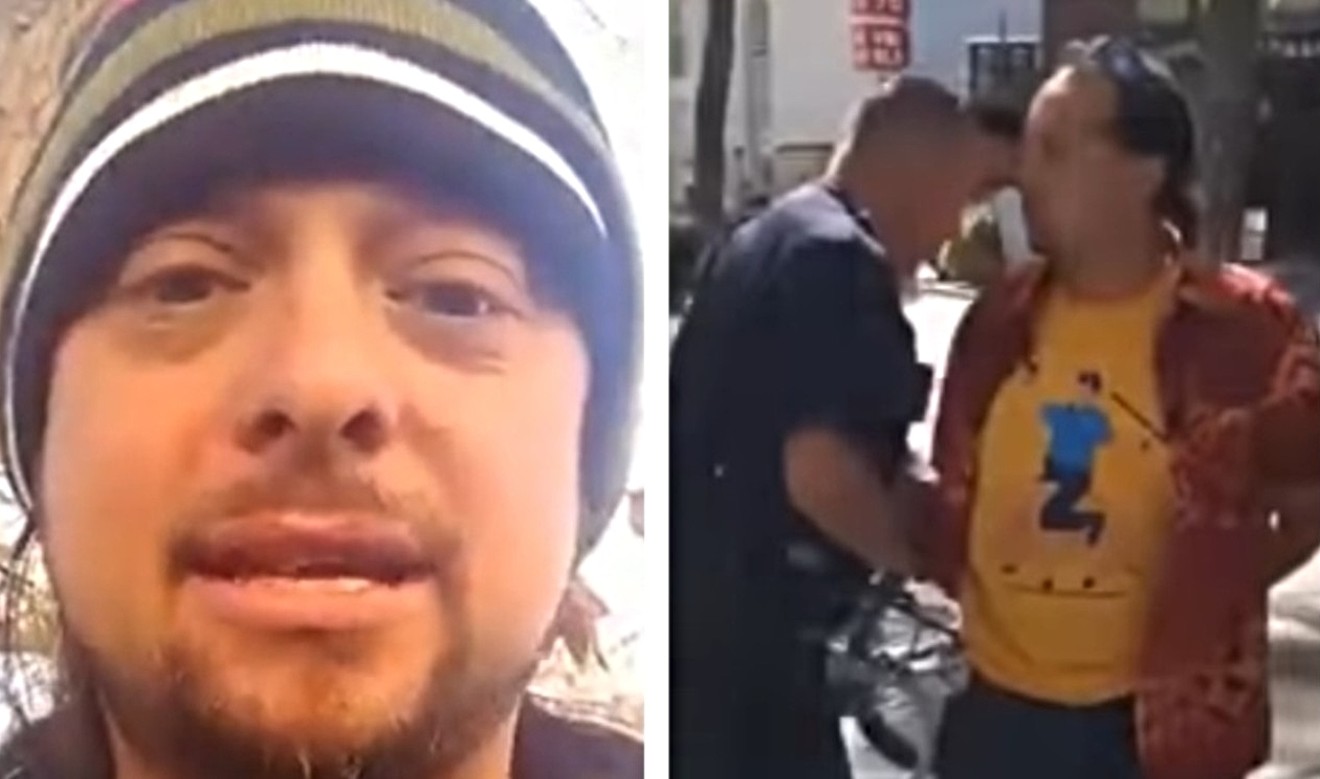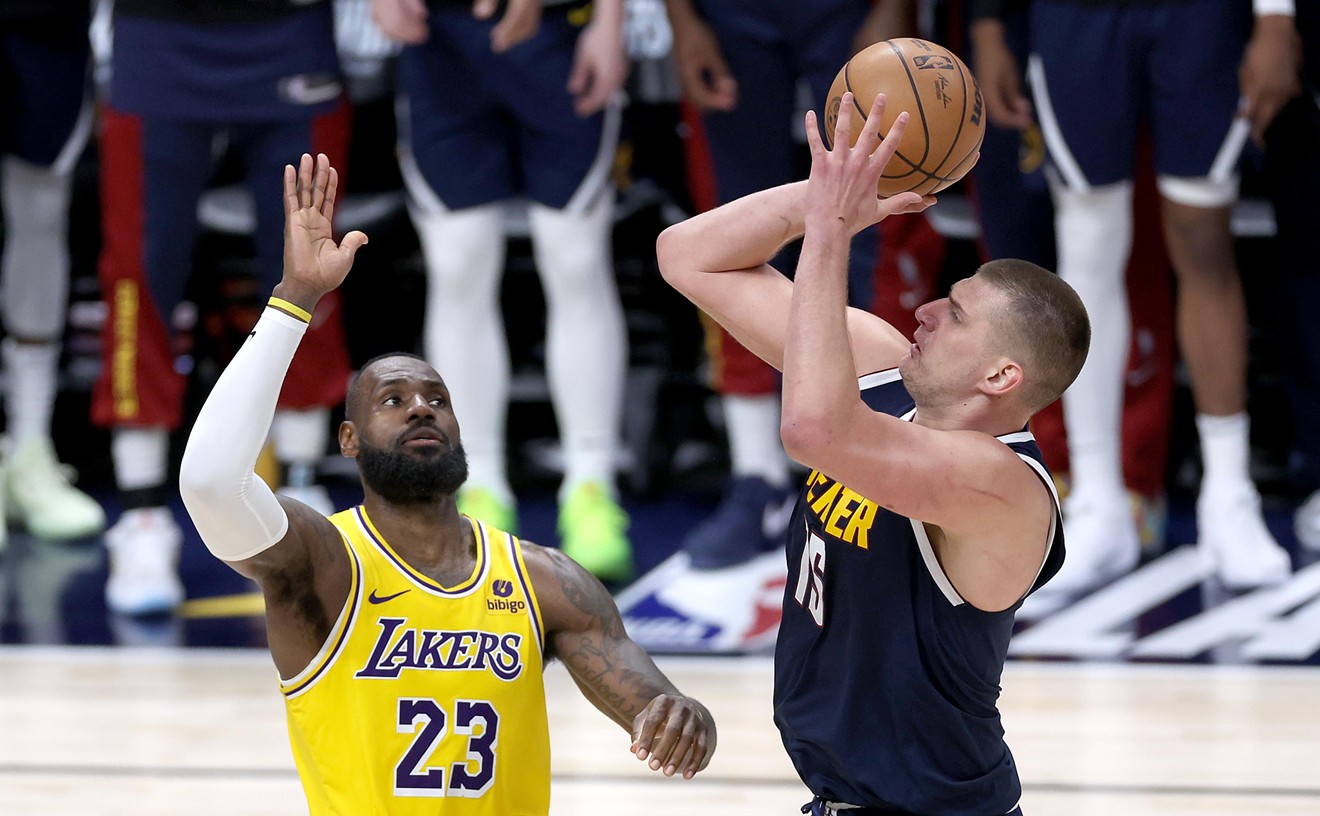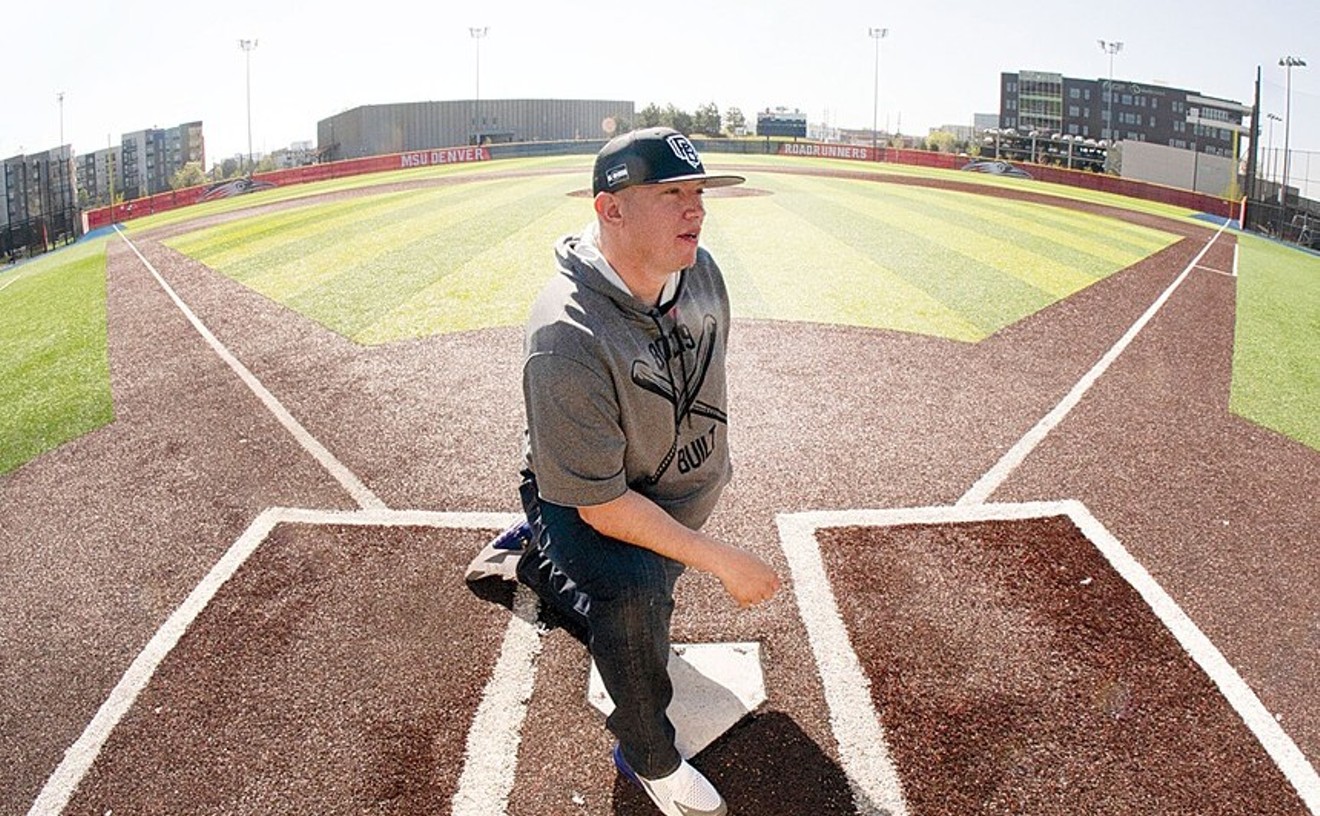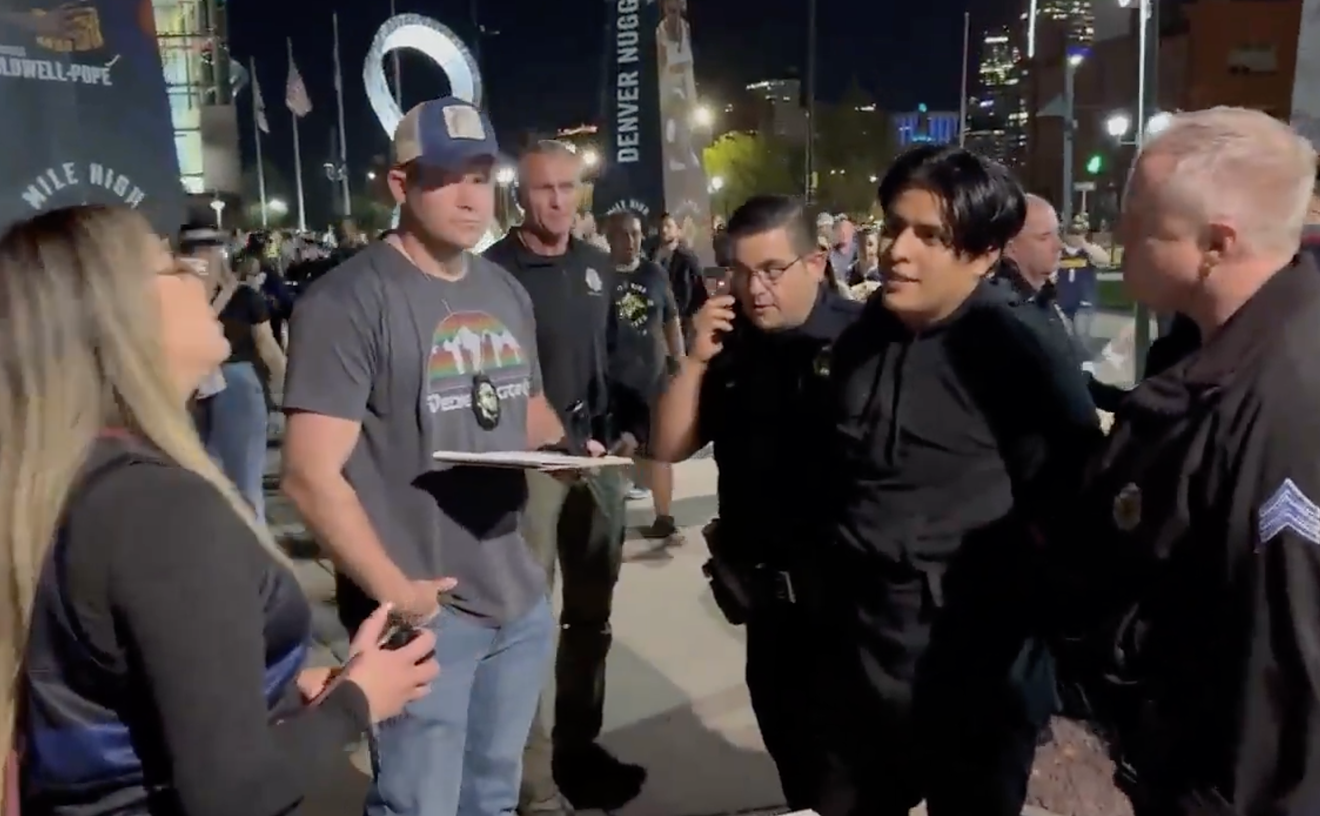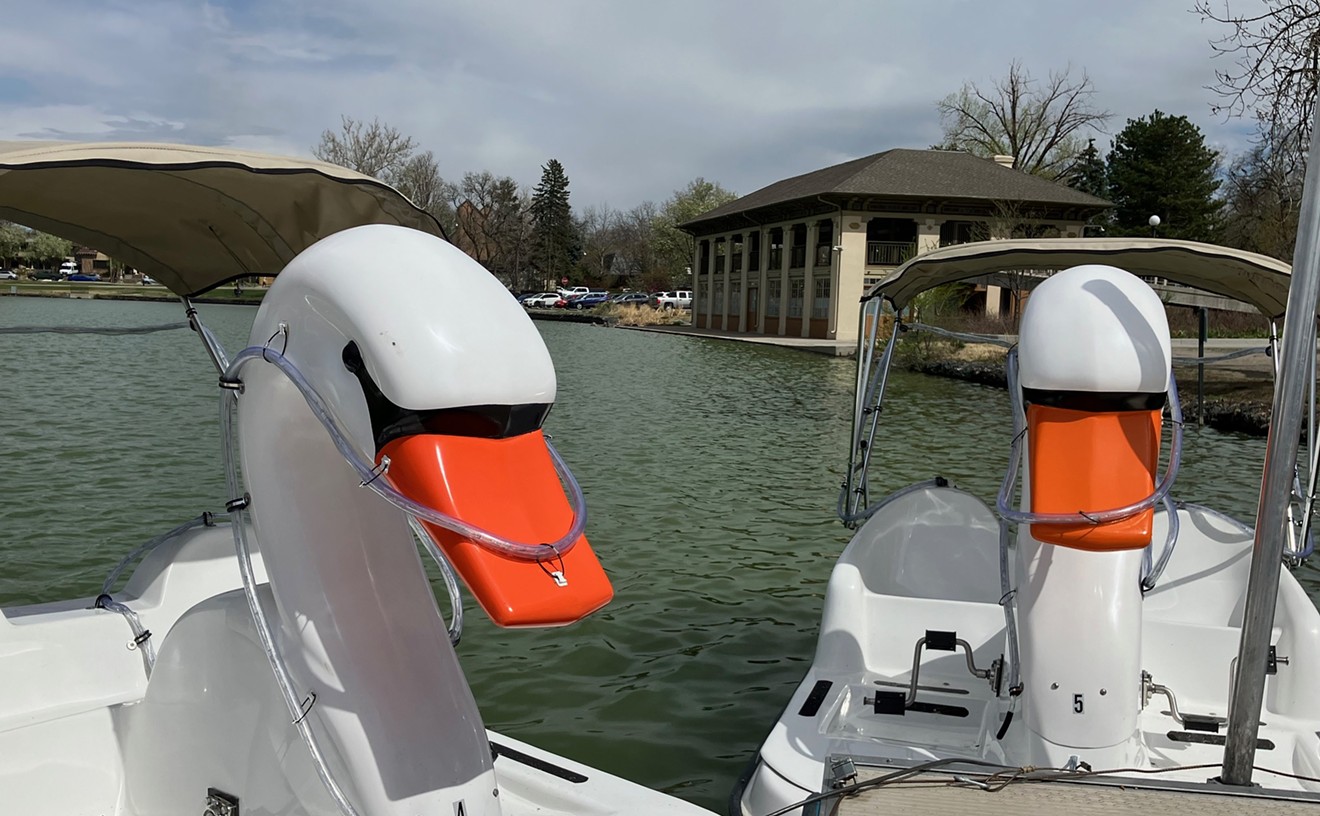In September 2020, activists Brian Loma and Mikel Whitney filed suit against the City and County of Denver and several Denver Police Department officers over an incident two years earlier, during which the pair were essentially arrested for using variations on the word "fuck." Now, Loma reveals that officials have agreed to settle the case for $128,002. But for Loma, the cash is less important than the complaint's impact on the way the DPD does business.
"I believe this case is very significant, because the Denver Police Department changed their policies and educational practices on different types of circumstances where they were making unlawful arrests," Loma says.
The story behind the suit, in which Loma and Whitney were represented by attorney David Lane and Denver-based Killmer, Lane & Newman LLP, began on Sunday, September 23, 2018, when members of Occupy Denver were distributing meals to the homeless on a sidewalk outside Corner Bakery, located at 500 16th Street on the 16th Street Mall, which had been the target of protests for several months. Demonstrators contended that the business supported what it saw as anti-homeless initiatives such as the urban camping ban — claims its owner denied in an interview with CBS4 Denver — and wouldn't allow people carrying multiple bags to use the bathrooms even if they paid for food.
Near the conclusion of the event, Loma saw what he considered to be "an unlawful practice by the Denver Police Department. They did a flanking maneuver to arrest someone for trespass without providing notice — not saying, 'Hey, you can't be here, do you want to leave or should we arrest you?' but just making the arrest." Loma responded by loudly declaring, "Fuck the police," after which he was busted for allegedly disturbing the peace — a charge he says officers tried to countenance by soliciting complaints from individuals outside a nearby restaurant. The same treatment was meted out to Whitney a short time later, after he responded to questions about whether he'd been shooting photos in a public place with the phrase "I did not take a fucking picture."
These events can be seen in the following clip, shared on the YouTube channel of Eric Brandt, a controversial figure in his own right; Brandt, who became known for displaying a sign emblazoned with the phrase "Fuck Cops," won multiple free-speech awards from Colorado communities, but he was convicted and jailed last year on charges related to threatening judges. Loma's arrest takes place around the video's three-minute mark.
According to the lawsuit, Loma and Whitney were incarcerated for 36 hours and 56 hours, respectively, before being released on bond. Early in 2019, the disturbing-the-peace beefs against them were dismissed, but the pair moved forward with a lawsuit the following year. According to Loma, he and Whitney learned through the discovery process that the DPD has updated its officer training to underscore the need to provide notice before cuffing someone for trespassing and reinforced a rule against soliciting a complaint from a passerby to justify an arrest.
To Lane, the settlement is part of a larger story. "Killmer, Lane & Newman’s attorney Andy McNulty has been in the forefront of attempting to stop Denver’s war on the unhoused," he notes. "We have also led the charge in protecting free speech. Over the past year, the taxpayers of Denver have paid approximately $1,000,000 to individuals who have been peacefully protesting either police brutality or Denver’s mistreatment of the unhoused. The Denver Police Department was recently tagged by a jury in federal court for $14 million because its leadership cannot control, train or supervise its rank-and-file officers to respect the constitutional rights of the people they are sworn to 'protect and serve.' Until Denver voters change the leadership of this city, their schools, health care and the quality of life downtown will continue to suffer while the people bear the burden of paying millions of dollars in court judgments and settlements to excuse an out-of-control police force."
Even though the Corner Bakery protests ended in 2019, Loma points out that he and other activists continue to serve meals near the intersection of 16th and Curtis each Sunday morning (click for information about how you can help) and laments that many of the problems that were evident four years ago still exist. For instance, public restrooms on the mall are frequently out of order, forcing homeless individuals to seek out other places to urinate — which is why "there are some spots where it stinks," he says.
"I'm not getting rich off the settlement," Loma adds. "I'll probably just balance my books and get out of debt. But I didn't do this for the money. I did it because I'm out there doing the work every week."
The Denver Department of Public Safety offered the following comment about the settlement: "While the Department of Safety is not involved in settlement negotiations, we can share that the Denver Police Department took action to address concerns related to this incident when it was made aware. As a result, the Department strengthened and enhanced officers’ training on the First Amendment and how to best handle situations like this. The Department continues to augment its training on First Amendment issues as new scenarios are presented."
Read Brian Loma and Mikel Whitney v. the City and County of Denver, et al. here.
This post has been updated to include a statement from the Denver Department of Safety.
[
{
"name": "Air - MediumRectangle - Inline Content - Mobile Display Size",
"component": "12017618",
"insertPoint": "2",
"requiredCountToDisplay": "2"
},{
"name": "Editor Picks",
"component": "17242653",
"insertPoint": "4",
"requiredCountToDisplay": "1"
},{
"name": "Inline Links",
"component": "18838239",
"insertPoint": "8th",
"startingPoint": 8,
"requiredCountToDisplay": "7",
"maxInsertions": 25
},{
"name": "Air - MediumRectangle - Combo - Inline Content",
"component": "17261320",
"insertPoint": "8th",
"startingPoint": 8,
"requiredCountToDisplay": "7",
"maxInsertions": 25
},{
"name": "Inline Links",
"component": "18838239",
"insertPoint": "8th",
"startingPoint": 12,
"requiredCountToDisplay": "11",
"maxInsertions": 25
},{
"name": "Air - Leaderboard Tower - Combo - Inline Content",
"component": "17261321",
"insertPoint": "8th",
"startingPoint": 12,
"requiredCountToDisplay": "11",
"maxInsertions": 25
}
]

